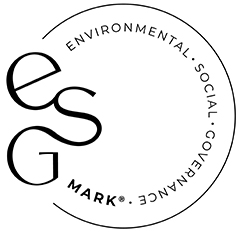Our monthly round-up of the latest VAT news.
Import costs
The cost of importing a consignment of medium or high-risk goods from the EU into Great Britain has been announced. This will mostly impact the importation of food and food stuffs, live animals, and plants.
The charges are set to cover the cost of inspections but will apply to all relevant imports, not just those actually checked.
While there is a line-by-line charge of £29 per CHED (common health entry document), this will be limited to a maximum of 5 lines charged, capping the charge at £145 per CHED. This could mean that a CHED for 40 tonnes of the same French cheese has a cost of £29, whereas five wheels of five different French cheeses (weighing 1kg each) could have a charge of £145.
Post 30 April, there are already reports of importers expecting a charge of £145 but being charged £3,000+ due to the way in which the imports have been organised (and their potential misunderstanding of the rules).
The charges do not apply to relevant goods that are being transited through Great Britain (e.g., from France to the Republic of Ireland) or goods for personal use by passengers on the Eurostar, etc.
However, if your business imports the relevant goods (which cover a myriad of products from animal feed to flower bulbs to parma ham), you need to establish how to minimise the costs by managing the entries made.
VAT fraud: Repayment businesses be alert
A large business (FTSE 100) was about to make a significant repayment claim (which they often did). A VAT 484 Form had been submitted to change the bank details of the business prior to the return being submitted. HMRC staff were suspicious enough to contact the business to find out that they had not changed bank details.
The fraudsters were exploiting HMRC’s inability to confirm details in writing within a reasonable time frame.
If your business is a regular repayment one (house builder, exporter, food retailer, farm), check your bank account details online before you submit your next VAT return to ensure that they’ve not been changed to those of a fraudster.
S’more food issues
Regular readers may remember a case last year where a manufacturer of giant marshmallows won at First Tier Tribunal by getting a ruling that they were not confectionery and so zero-rated. One of the main issues was that the product was designed to go through a further cooking process before it was ready to eat. One such finished dish is called "S'mores,” a combination of marshmallow, biscuits, and chocolate.
HMRC decided to appeal this to the Upper Tier. At this hearing, the Tribunal made a technical distinction by making a note to the relevant VAT Group (Group 1 of Schedule 8 of the 1994 VAT Act), ruling that it was an inclusive provision to settle potential doubt rather than a deeming provision (HMRC’s view), which meant there were no further findings of facts. This was the main issue used to settle the hearing in favour of the taxpayer.
Therefore, of the typical three sizes of marshmallow available, both the small and large are not confectionery (and so are zero-rated), but the “standard” size is confectionery, so it is standard-rated. The small marshmallows are zero-rated as ingredients in cooking.
Gold
Qubic Advisory Services Ltd makes supplies of investment gold. HMRC issued the business with penalties for failing to keep proper records and issue invoices, which are required by law for investment gold even though the supply is potentially exempt. These penalties amounted to £14.8m.
The business appealed the penalty and lost at the First Tier so appealed to the Upper Tier.
The key issue was whether the gold was “delivered, or otherwise made available to” Qubic’s customer or “delivered or available to be taken away by” by Qubic’s customer. The Tribunal ruled that it did not so there was no supply of the gold so no requirement for invoices to be issued. On that basis, the penalties were cancelled.
Split payments: are they legal?
When a business fails or, in a fraud situation, goes missing, the tax authorities may lose the VAT collected on their behalf on sales. To address this, a rule was introduced in Poland where if sales were over a threshold (3,500 euros), the VAT had to be paid into a separate bank account. This account had significant restrictions on how the funds could be used, and it was these restrictions that gave rise to the case.
A liquidator wanted access to these funds to use the monies to pay creditors. The Polish tax authorities refused, as the monies could only be used to pay VAT debts. The AG for the Court has ruled that ring fencing the VAT was compatible with the Primary VAT Directive.
While this is a European case, someone from HMRC may read this and think...
Get in touch
If you would like to discuss any of these VAT updates in more detail, please contact Ian Marrow via ian.marrow@rickardluckin.co.uk
To receive future copies of our VAT newsletter, or any of our other newsletters, directly to your inbox, please
register your interest via our preference centre.
If you have any questions about the above, or would like more information specific to your circumstances, please enter your email address below and we will get in touch:













